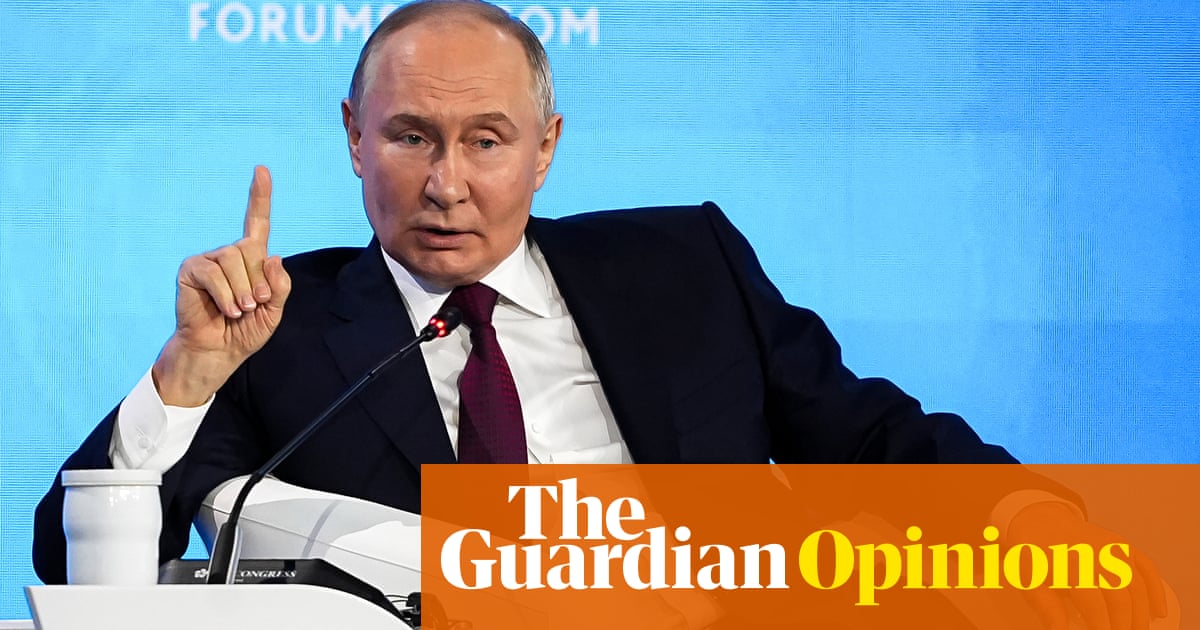
Warnings about nuclear escalation in Ukraine are now being issued with increasing frequency and urgency, due to dramatic changes in policy by some of Kyiv’s main western supporters.
Some European countries, including Britain, France and Germany, and the United States, have changed course, giving Ukraine the green light to use their weapons against sites within Russia. The latter two limited their permission to Ukrainian strikes aimed at defending Kharkiv province – although, according one report, Joe Biden may even lift that geographic restriction, as well. These steps are responses to devastating Russian strikes on Ukraine, many from points beyond its reach.
These changes in western policy – plus the French president Emmanuel Macron’s plans to send French troops to train Ukrainian forces on site and even possibly to fight – have heightened anxieties that Russia may undertake nuclear escalation in retaliation. Vladimir Putin has alluded to this possibility since the day he invaded Ukraine, as have other senior Russian officials, most notably Dmitry Medvedev, the deputy chairman of the security council of Russia, who previously served as prime minister and president, and may hold the record within Russian officialdom for the frequency of nuclear threats.
The problem leaders and pundits face is that the risks of escalation are devilishly hard to pin down. It’s impossible to make predictions about nuclear escalation in the manner of weather forecasters predicting rain or tornadoes. Simply put, there’s no reliable procedure for making assessments nor any solid evidence on which to base them because there has never been a crisis in a world with multiple nuclear powers that spiraled and culminated in the use of nuclear weapons.
Therefore, analysts and commentators trying to determine the risk of Russian escalation put themselves in Putin’s place and try to see the world, and the Ukraine war more narrowly, as they imagine he sees it. Yet they cannot be sure that their attempts to reconstruct Putin’s views – based on the state of the battlefield and the changes occurring within it, including shifts in policy by Ukraine’s western supporters – correspond to his perceptions.
Even if that problem could somehow be overcome, there’s another. Putin’s views aren’t set in stone – no leader’s are – and can shift quickly based on his reassessments of how the war is going and what he needs to do to achieve victory. Outsiders’ conclusions about escalation lack any solid evidentiary foundation beyond what Putin and his associates say on the subject. Yes, analyzing the latest iteration (2020) of Russia’s nuclear doctrine can help, but nothing prevents Russian leaders from going off script. Besides, that document sets conditions, such as a nuclear attack on Russia or a threat to its existence, that aren’t pertinent to the war in Ukraine.
Some experts attribute an increase in Russian nuclear escalation threats to posturing and intimidation attempts, others see it as alarming
There’s also no surefire way to ascertain the value of the statements emanating from Moscow’s inner circle. Are they reliable guides to the Kremlin’s true beliefs and therefore useful in predicting what Putin may actually do? Or are they part of an information war designed to unnerve the west and influence its policies governing what Ukraine may do with Nato-supplied weapons?
Because we can’t know what Putin and his foreign policy and national security crew are discussing behind closed doors, there’s no way to know whether their public pronouncements are warnings to take seriously or scare tactics to ignore. The result? Some experts attribute an increase in Russian nuclear escalation threats to posturing and intimidation attempts, others see it as alarming.
In pondering the escalation problem, it helps to imagine how and where Putin might decide to use nuclear weapons. Surely, he wouldn’t rain them down on the United States or Europe; that would be suicidal. Perhaps he’d attack Ukraine – but he’d have to find a place that’s not teeming with Russians troops, lest they be killed as well, and in large numbers. He might choose western Ukraine, far from the frontlines, but launching a nuclear strike there for demonstrative effect could still kill many people, shock the global community and even provoke Nato retaliation.
Beyond that, Putin’s messaging to the global south and sympathetic westerners about the Ukraine war has painted the west as heedless of legitimate Russian security concerns, especially Kyiv’s aspirations to membership in Nato and its growing military ties with the west. Using nuclear weapons would be a bad way to win friends and influence people.
skip past newsletter promotion
Sign up to Headlines US
Get the most important US headlines and highlights emailed direct to you every morning
Privacy Notice: Newsletters may contain info about charities, online ads, and content funded by outside parties. For more information see our Privacy Policy. We use Google reCaptcha to protect our website and the Google Privacy Policy and Terms of Service apply.
after newsletter promotion
More importantly, despite the “no limits friendship” between Beijing and Moscow, President Xi Jinping has made his opposition to the use of nuclear weapons in Ukraine clear.
While it’s prudent to worry about escalation and to avoid steps that increase the risk based on the (unachievable) certainty that Moscow’s threats are mere noise, it’s also important to understand that the risks of escalation cut both ways. Putin is not immune from them.
Ultimately, there’s no escaping the fog of war. In such circumstances it’s essential to keep in mind the downsides of being wrong – which, when nuclear weapons are involved, are catastrophic – but without succumbing to paralyzing fear. Alas, that balance, while easy to prescribe, is hard to strike.
-
Rajan Menon is the director of the grand strategy program at Defense Priorities, a professor emeritus of international relations at the City College of New York and a senior research scholar at Columbia University’s Saltzman Institute of War and Peace Studies
The post Is the risk of nuclear escalation rising between Russia and the West? | Rajan Menon first appeared on The News And Times Review – NewsAndTimes.org.
